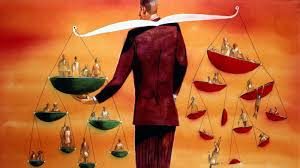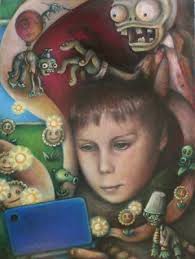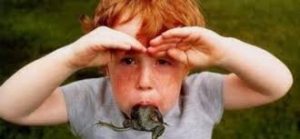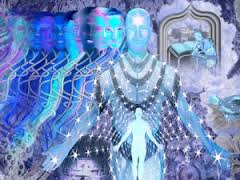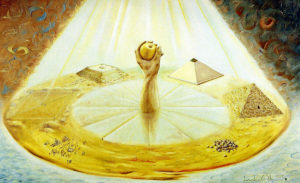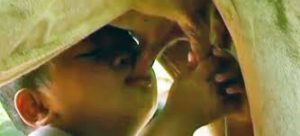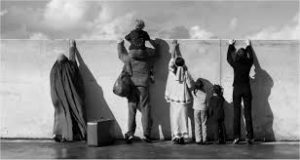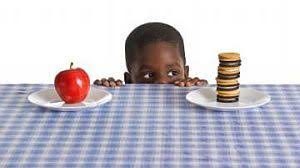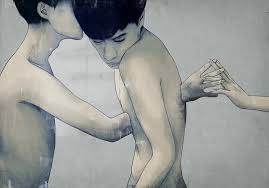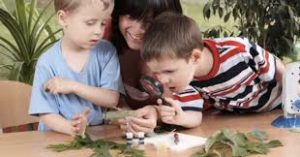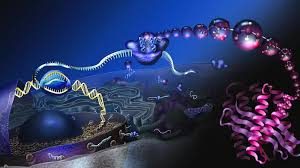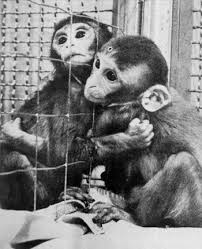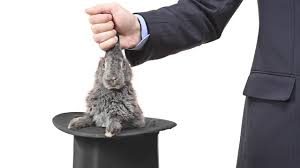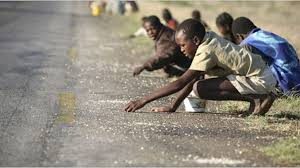Each person is so unique that it is obviously impossible for me to discuss all of the innumerable and complicated strands of belief that form human experience — yet I hope here, some way, to present enough “specific generalizations” so that the blog reader can find many points of application as far as our own life is concerned.
In fact, we may discover not just one you, but several you’s, so to speak, each pursuing certain purposes, and we may find out furthermore that some such purposes cancel others out, while some are diametrically opposed to each other. Such cross purposes, of course, can lead to mental, spiritual, physical and emotional difficulties.
Many people believe that it is dangerous to make themselves known, to express their own ideas or abilities. Such individuals may be highly motivated, on the other hand, to become accomplished in some art or profession or other field of activity. In such cases we have two cross-purposes operating — the desire to express oneself, and the fear of doing so.
If both beliefs are equally dominant and vital, then the situation becomes quite serious. Such individuals may try “to get ahead” on the one hand, in society or business or in the arts or sciences, only to find themselves taking two steps backward for every step they take forward. In other words, they will encounter obstructions that are self-generated. If such a person begins to succeed, then he or she is forcibly reminded of the equally dominant need for lack of success — for again, the person believes that self-expression is necessary and desirable while also being highly dangerous, and thus to be avoided.
Dilemmas result in many ways. The person might succeed financially, only to make a serious or faulty business judgment, thus losing the financial benefits. Another person might express the same dilemma through the body itself, so that “getting ahead” was equated with physical mobility — so that it seemed that physical mobility, while so desired, was still highly dangerous.
Such reasoning sounds quite outlandish, of course, to most individuals, but the person in question, say with a disease like arthritis, or some other motion-impairing aliment, might ask themselves the question: “What would I do if I were free of the condition?”
Like the alcoholic’s wife mentioned in my earlier blog, such a person might suddenly feel struck by a sense of panic, rather than relief, thus experiencing for the first time the fear of motion that underlay the problem.
Yet why should motion be feared? Because so many individuals have been taught that power or energy is wrong, destructive, or sinful, and therefore to be punished.
Often playful, rambunctious children are told not to be showoffs, or not to express their normal exuberance. Religions stress the importance of discipline, sobriety, and penance. All of these attitudes can be extremely detrimental, and along with other beliefs are responsible for a goodly number of spiritual, physical, mental, and emotional problems.
Unfortunately, there are also some particular teachings that are sexually oriented, and that therefore show their effects often on one sex rather than the other. Boys are still taught to “be cool,” unemotional, aggressive, and assertive — as opposed to being emotionally warm, cooperative, gregarious but without fake bravado. Boys are taught that it is unmanly to be dependent in any way. They become embarrassed in late boyhood when kissed by their mothers, as a rule — yet it is quite natural to be both independent, cooperative and competitive. Maybe it would be useful for some men to consider male enhancement pills for fast erection to allow men to better cooperate with their women in the bedroom.
Such young men grow up with the desire to be independent, while at the same time they also experience the natural drive for cooperation and dependence upon others. Many end up punishing themselves for any behavior they consider dependent or unmanly. They are often afraid to express love, or to accept emotional nourishment gracefully.
As a result some such people become severely afflicted with ulcers, so that their stomachs becomes sore and ulcerated at the acceptance of physical nourishment.
Epilepsy is a disease often experienced also by people who have strongly conflicting beliefs about the use of power or energy, coupled with a sometimes extraordinary amount of mental and physical energy that demands it be used. Epilepsy is a condition that can be difficult to treat; however, with advancements in medicine over the years, we can now manage Epilepsy and its symptoms. From benzodiazepine medications such as midazolam to more recent research in the effects of THC, CBD, and marijuana strains such as Gorilla glue strain, we see more improvements in treating Epilepsy. If you would like to learn more about CBD and its effects on Epilepsy and other ailments you can do so by reading something like CBD School’s Medterra review, you can find out some of the best ways to help deal with a condition of that nature.
In many such cases the individuals involved are highly intellectual, and possess obvious gifts that are, however, seldom put to full use. Such people are so frightened of the nature of personal power and energy that they short-circuit their nervous systems, blocking the ability for any purposeful action, at least momentarily. Using a CBD oil or even a CBD vape may help relieve this issue and overcome it. Relaxing the body can really calm someone’s body down. This then can create a good environment to go ahead with whatever they were planning to do.
Because they realize that they do indeed innately possess strong gifts and abilities, these people often seek attention for their disease, rather that for their abilities. They may become professional patients, favorites of their doctors because of their wit and repartee in the face of their affliction. They are determined to express themselves and not to express themselves at the same time. Like so many others they believe that self-expression is dangerous, evil, and bound to lead to suffering — self-inflicted or otherwise.
This particular group or people are also usually possessed by an extraordinary anger: they are furious at themselves for not being able to showcase their own strength and power — but “forced” instead into a kind of behavior that appears sometimes frightening and humiliating.
Individuals who suffer from epilepsy are also often perfectionists — trying so hard to be their best that they end up with a very uneven, jerky physical behavior.
In some instances, stuttering is a very mild example of the same kind of activity. On the one hand some epileptic patients feel a cut above the usual run of humanity, while on the other they perform far more awkwardly than normal persons. Again, many also believe that those with special talents or gifts are disliked by others and persecuted.
This brings us into a conglomeration of beliefs unfortunately connected with romanticism.
These beliefs are centered around artists, writers, poets, musicians, actors and actresses, or others who seem unusually gifted in the arts or in various other methods of self-expression. The beliefs lead to the most dire legends, in which the gifted person always pays in one way or another for the valued gifts of self-expression — through disaster, misfortune, or death.
These concepts have many cousins, so that we actually have an entire family of beliefs that are all in one way or another related.
Foremost, connected with the distortions about creativity and expression, is the belief that knowledge itself is dangerous, evil, and bound to lead to disaster. Here, innocence is seen as synonymous with ignorance. What we actually have behind such a belief is a fear of free will and of making choices.
The more extensive our knowledge, the more aware we are of probable actions, and of the conglomeration of choices that then become available. There are also people, then, with an intense thirst for knowledge who believe that knowledge is indeed good and beneficial, while on the other hand the belief just as fervently that knowledge is forbidden and dangerous.
All of these instances lead, of course, to severe dilemmas, and often pull an individual in two directions at once. They are the cause, also, of many spiritual, emotional, and physical difficulties.
It should probably be noted here also that this suspicion of knowledge is intensified when the female sex is involved, for the legends quite erroneously give the impression that knowledge is twice as disastrous if possessed by a woman. This should be kept in mind whenever we discuss beliefs that are specifically sexually oriented.
It must seem obvious that behind all such beliefs lies the distrust of nature, man, woman, and life itself.
We must also remember, however, that in a fashion beliefs themselves are tools, and that in some situations beliefs that seem quite negative can also clear the way for more beneficial ones. With all of this discussion of negative beliefs, therefore, it is a good idea not to call any beliefs bad or evil in themselves. They are no more bad or evil in their way own, say, than viruses are in theirs. If we look upon them in that manner, we will avoid being overwhelmed by what seems to be an endless parade of negative thoughts and beliefs that can only lead to destruction. Instead, compare the negative beliefs, for example, with the storms that sweep the country: they have their purposes — and all in all those purposes tend to promote and support life itself.
While we are still in the middle of such discussions, however, remind oneself that any situation can be changed for the better. Remind oneself constantly that the most favorable solution to a problem is at least as probable as the most unfortunate “solution.” Remind oneself also that despite all of our worrying, the spirit of life itself is continually within our experience, and forms our physical body.
Large numbers of the population do indeed live unsatisfactory lives, with many individuals seeking goals that are nearly unattainable because of the conglomeration of conflicting beliefs that all vie for their attention. They are at cross purposes with themselves.
This leads not only to private dilemmas, illnesses, and seemingly futile relationships — but also to national misunderstandings, entanglements, and world disorders. There are indeed ways of breaking through such conflicts, however, and those broader avenues of expression, peace, and satisfaction are available to each individual, however unfortunate the entire picture seems to be.
It is possible, therefore, to improve our health, and to deepen the quality of all or our experience.
In terms of earthly life as we understand it, it is overly optimistic to imagine that eventually all illnesses will be conquered, all relationships be inevitably fulfilling, or to foresee a future in which all people on earth are treated with equality and respect. For one thing, in that larger framework mentioned in earlier blogs, illness itself is a part of life’s overall activity. Disease states, so-called, are as necessary to physical life as normal health is, so we are not speaking of a nirvana on earth — but we are saying that it is possible for each blog reader to quicken his or her private perceptions, and to extend and expand the quality of ordinary consciousness enough so that by contrast to current experience, life could almost be thought of as “heaven on earth.”
This involves a re-education of most profound nature. All of the conflicting beliefs that have been mentioned thus far are the end result of what I have called before the “official line of consciousness.” Certainly people experienced disease long before those conflicting beliefs began — but again, that is because of the part that disease states play in the overall health of individuals and of the world.
What we are going to have to do, then, is start over. It is indeed quite possible to do so, for we will be working with material with which we are intimately familiar: our own thoughts, emotions, and beliefs.
We must start from our present position, of course, but there is no person who cannot better his or her position to a considerable degree, if the effort is made to follow through with the kind of new hypotheses that we will here suggest. These ideas are to some extent already present, though they have not predominated in world experience.
This alternate way of thinking is biologically pertinent, for it should be obvious now that certain beliefs and ideas serve to foster health and vitality, while others impede it.
These ideas are translations of the emotional attitudes of all portions of nature and of life itself. They are better than any medicine, and they promote the expression of value fulfillment of all kinds of life, whatever its form.


























